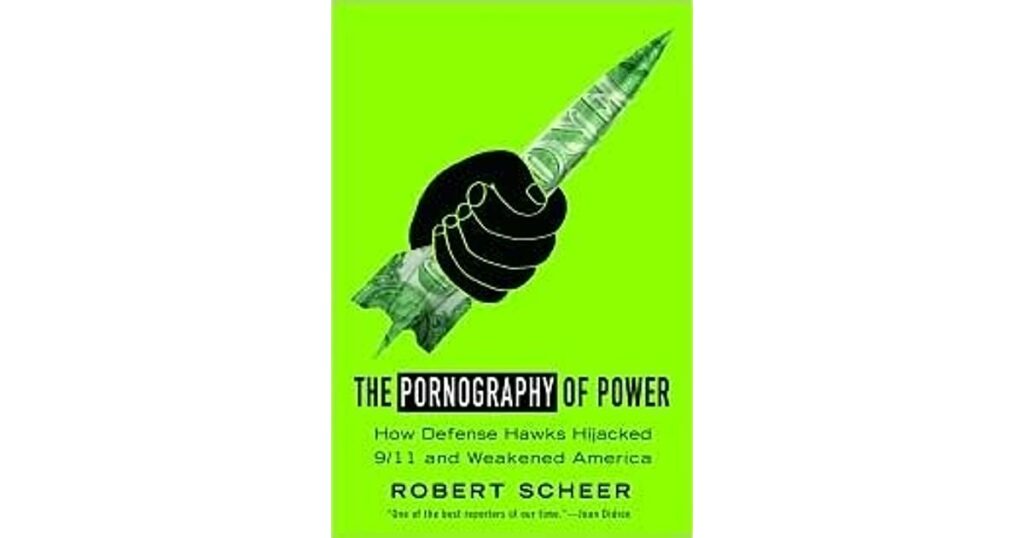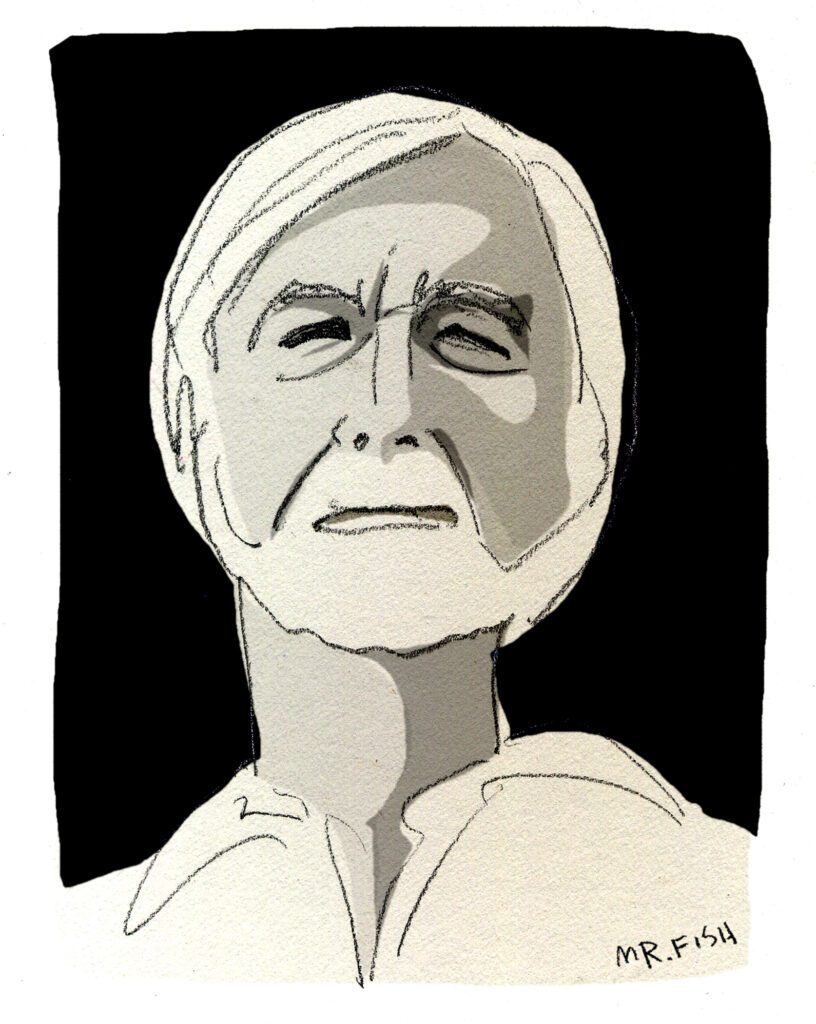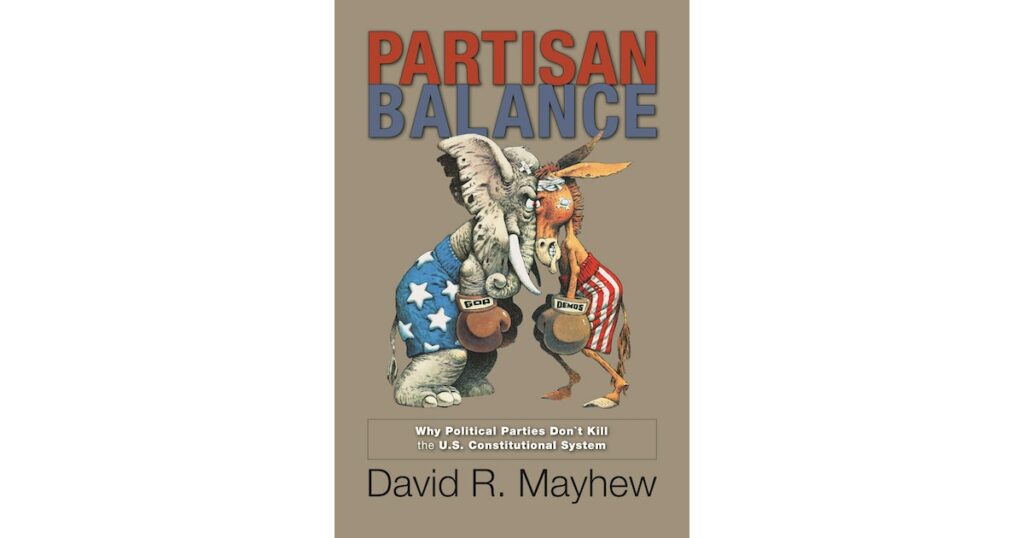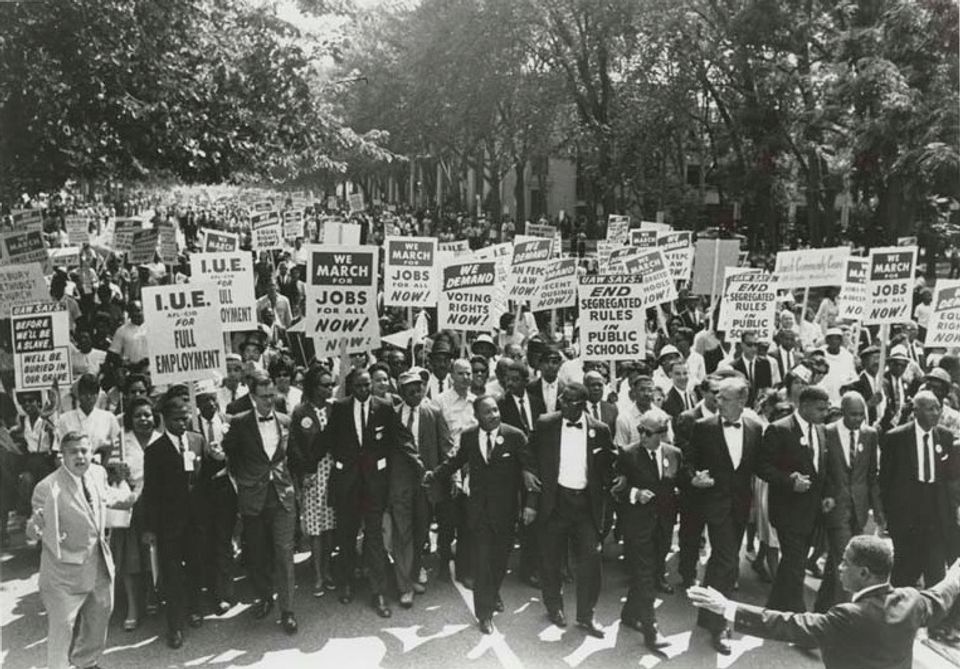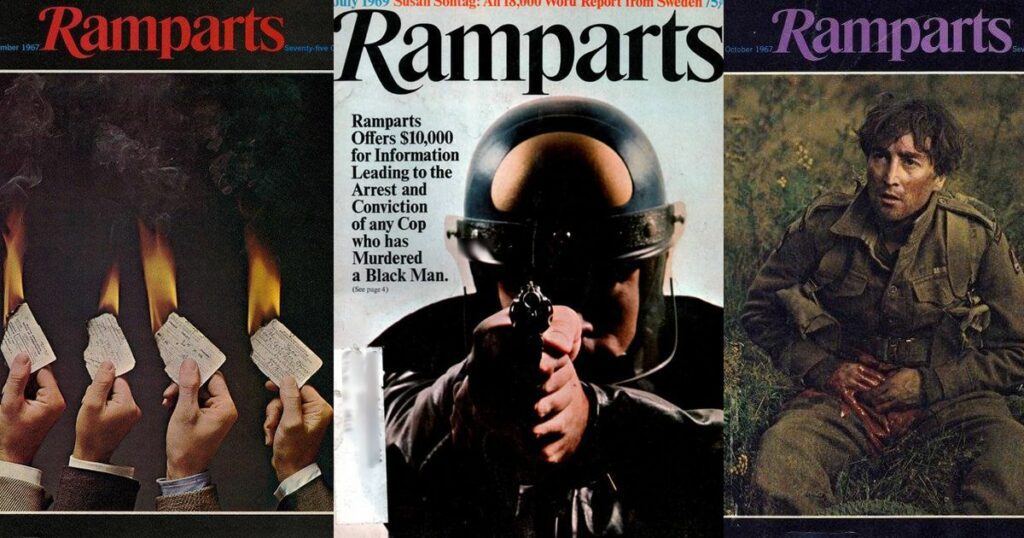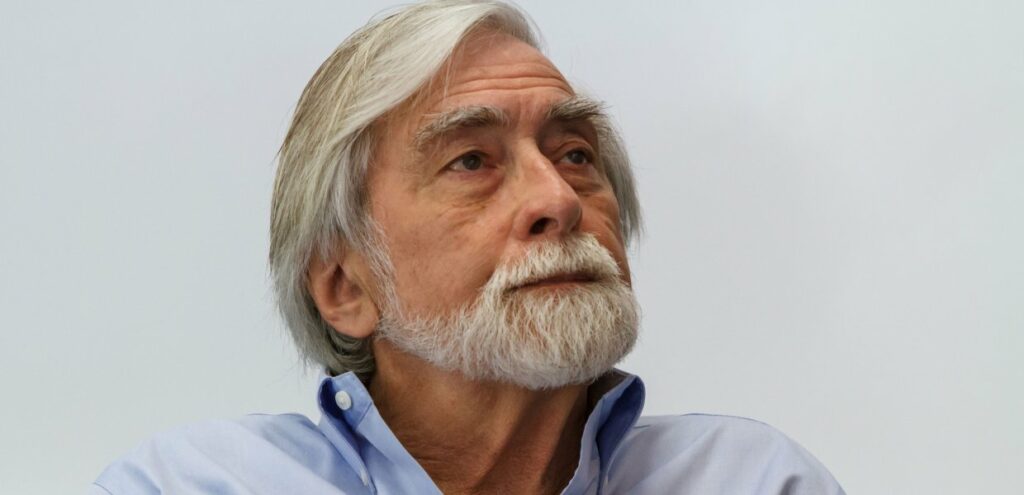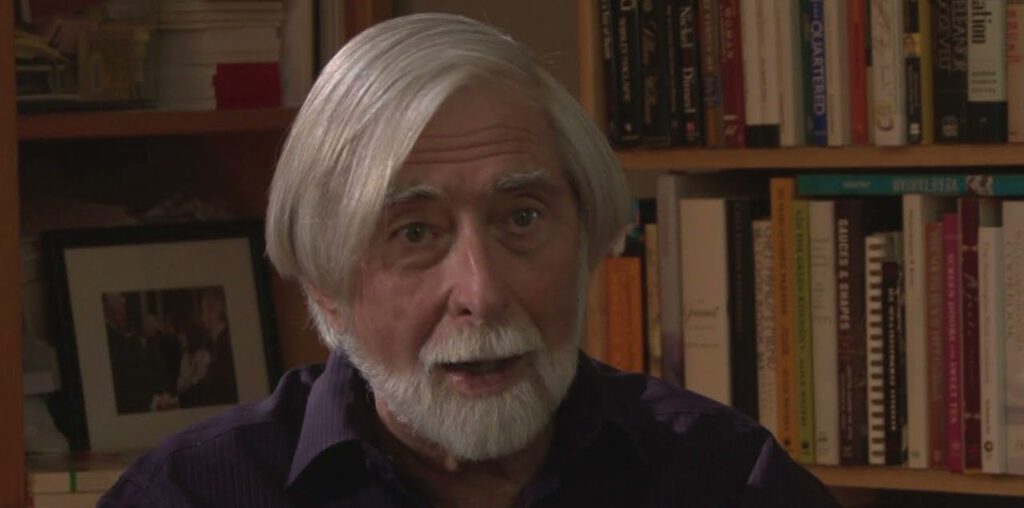This interview was originally published on June 19, 2015.
On Reality Asserts Itself, Mr. Scheer talks about his father’s thirst for freedom and how that influenced his life; Scheer says defense of the U.S. Constitution, in spite of its flaws, is critical in defending against the erosion of democracy.
PAUL JAY, SENIOR EDITOR, TRNN: Welcome back to Reality Asserts Itself on The Real News Network. We’re continuing our interview with Robert Scheer, who joins us again in the studio. Thanks for joining us.
PROF. ROBERT SCHEER, JOURNALIST AND AUTHOR: Thank you.
JAY: And one more time, Bob Scheer is a veteran U.S. journalist, currently editor-in-chief of the five-time Webby Award-winning online magazine Truthdig. And Bob’s whole biography you’ll find below the video player here. Well, the framers of the Constitution–and it’s still the case today–
SCHEER: Wore wigs.
JAY: –it’s the sanctity of the individual who owns property.
SCHEER: I know. We, you know,–.
JAY: And it’s still today.
SCHEER: Let me correct that. Let me just correct that, because that’s asserted over and over again. One of the major prophets of the American Revolution, and I would say the most important, was Tom Paine. And Tom Paine was not speaking to people who owned property. Tom Paine was that town crier. Tom Paine was that guy with the broadside. Tom Paine was that guy who hustled some printer. He was you. You know, he did but I did with Ramparts. That’s Tom Paine. Hustled some printer: yeah, I’ll pay you next month, you know, and meanwhile print my pamphlet. You know? And those pamphlets, no one can challenge that. Tom Paine was the guy who gave the American Revolution its urgency and definition, okay? And he was an immigrant, a recent immigrant from England, someone on the lam. You know? And if you look at Justice Roberts, the Supreme Court, the ruling a year ago in June on why the police can’t crack into your smart phone and use that data–unanimous decision of a Supreme Court that many of us don’t like, you know, but it included the liberals and the conservatives–unanimous. Scalia, everybody, said no, the cops can’t get that data, ’cause that’s a general warrant. That’s not specific. It’s a violation of due process. They can’t crack the code and convict you on some crime that they were not looking for. It goes back to English common law of the humblest peasant. This goes against your rich guys argument. The humblest peasant is off-limits to an agent of the king, cannot come in and rummage about.
JAY: Yeah.
SCHEER: The reason the Fourth Amendment is so important, as Justice Roberts said, the American Revolution was sparked by that demand. Okay? And when the agents of the king came in looking for your tax violation or are you selling rum or are you doing this or are you paying your taxes, blah blah blah, okay, they said that is what sparked the revolution.
JAY: Yeah. But it’s fine in theory. It’s lovely on paper. We’re in Baltimore here.
SCHEER: I’m in Baltimore.
JAY: These constitutional rights of people who don’t own any property are violated after day every–. Go to court and see what constitutional rights, go see what constitutional rights Freddie Gray had, who just got murdered in Baltimore. It’s if you have property, you can actually assert those rights. Yes, they’re there for everyone. It’s like this–I once heard this coal miner, yes, anyone can go into the Ritz-Carlton, but not everybody can rent a room. It’s the same with constitutional rights. They’re there, but you can’t actually implement them unless you’ve got a lawyer, unless you–I mean, I walk into a police station; as you know, it’s a completely different story if some young black kid walks in.
SCHEER: Yeah, I know. I understand.
JAY: The reality–
SCHEER: Let me explain what I’m–.
JAY: –is different than the–than–and I’m–. Just a sec. And I’m not undervaluing the importance of these individual constitutional rights, even if the poor and people without property–it’s still massively significant that there’s still as much individual rights in the United States as there is. It’s very significant. And we need to fight for them. And this is why people that say we’re already living in fascism I don’t agree with, ’cause we’re really not quite there yet. And–.
SCHEER: Those who say we’re already living in fascism have not been in–
JAY: Lived in fascism.
SCHEER: –have not been in a totalitarian country.
JAY: I agree.
SCHEER: You know. And this hit me–. Look, first of all, my parents came to this country–I don’t want to sing “The Star-Spangled Banner” here, but they came because they had experienced, particularly my mother had experienced–you know, my mother was smuggling secrets in her hair when she was 17 years old and went to see somebody in Lithuania who was being tortured. She didn’t know he had been arrested. And she was put up by some people near the prison where she could hear his screams all night. And I’ve been in a lot of these countries. And I think it’s a copout. What you said–and I say this to you with great respect for what you do, great respect that you know a lot more about Baltimore and inner cities than I do, ’cause you’re working here. You care about covering it. And, also, anything I tell you in this show, I may be full of it, or I wouldn’t be a journalist. I may have it wrong. Okay? I’m not a big ideologue in that way. I don’t think I’ve got it all, a handle on everything. I really mean that. But I think–so let me get a little bit autobiographical here, which you wanted to do. I told you about finding those volumes by the garbage can. Now let me go back to my own childhood here, ’cause it really is important. My father was a part of–there were waves of German immigrants who came to this country, sparked by turmoil in Germany, of different kinds, but usually “Die Gedanken sind frei” [German: Thoughts are free], you know, the desire for freedom. It’s even in Beethoven’s Ninth, you know, the whole idea that, you know, thoughts matter. No tyrant shall–I forget the way it went, Die Gedanken sind frei, but no tyrant shall shape the–no one–no man can deny Die Gedanken sind frei, thought is free.
PETE SEEGER SINGING “DIE GEDANKEN SIND FREI”: My thoughts will not cater to duke or dictator / No man can deny, Die Gedanken Sind Frei / No man can deny, Die Gedanken Sind Frei
SCHEER: And my father had that. And I don’t know what happened to him. I think he had a physical fight or beat up his high school principal. He was a farmboy in Germany. And his mother got him–my mother came over in steerage. My father came over, I think, second class or just above steerage. I found his thing on Ellis Island–my son Peter did, and so forth. And my father, we don’t know. He was 13, 14, maybe 15, but probably 13, 14 when he came. He didn’t know anybody. He had some relative he was supposed to find, but when he finally found him, he didn’t like him. So this guy was on his own. And he came from a town in Germany were every male–in each of these towns–and I’ve been there many times, Southwest Germany. It’s called the /fɒls/, and land was too poor to support the whole–it’s like the Old South in the United States. So each village–and they were about 3 kilometers apart–the people would, the males would learn something, to make pots or do something. And my father’s village, Mackenbach, they were famous for training musicians for the circus and other things. So my uncle, who I found after my father died when I went back to Germany, my uncle Ludwig, he had actually–he was wounded at Stalingrad fighting the Russians, but he’d already been in Moscow before the war as a musician. So my father arrived. He had his clarinet. I still have it hanging–well, not that one. I have a different version of his clarinet that I got from his brother hanging on my wall. But my father came, and he played on street corners and played the clarinet and music, and he learned to be a hand knitter and then a knitter mechanic. He was good with mechanical things. And he worked very hard. Real strong work ethic. And he became a Wobbly and an anarchist, and then he flirted with his union, with–the industrial union was communist for, I think, three weeks. And he got kicked out when my Aunt Lillie testified against him because he ran a wildcat strike against the union’s demands at the New York knitting mills. And my mother and father met when my mother–in 1936, they met on a picket line, or ’35, and they had me, you know, the undocumented child. And that’s how I came into this world. I believe very much in a woman’s right to choose, but I’m glad that my own mother chose to have me. So I do believe life is quite precious that way, at least mine. And so I was born in this. And as far as justice being fair, I was raised from day one to say my father’s whole thing, he would tell me, he says, you know, just don’t to anything where those cops’ll get you, because they’ll get you in the police station, beat you around the head, you’ll be funny-headed and you’ll be no good to no one. Okay? That’s my father’s–boom. I would hear that over and over again. You know, just watch it, you know, because that happens in 77th Precinct. Boom–they’ll get you. And the cops were Irish. He didn’t like the Irish there because of that, you know, and the whole thing. And so I grew up in that. I knew life was not fair. I could see–when we went down to get something for my mother, I could see she’s working in a sweatshop. The people, the woman were in their underwear ’cause there was no air-conditioning. I grew up in the Bronx. We didn’t have air conditioning when I was growing up. We slept on a roof of the tenement. You know, I know all this stuff. My aunt was a German maid, very proudly. She worked for rich people in New York. So I didn’t come from some kind of–you know, I was aware of how unfair things were. On the other hand, I also was aware that there were things that worked better than they did in a lot of other countries. Like we had good public schools. I’m a post-FDR person. You know, I mean, FDR was the hero in our house. So elections do matter, because we got this guy in there, a rich American. We all knew he was a rich American. But the guy saved our ass. And I heard the same thing from Ronald Reagan. Ronald Reagan told me–and he said this in one of his books, but when I interviewed Reagan, and I got–we’ve got the tapes, Norman Lear Center, crew around with me, but I published it in the LA Times, and Reagan said in his home, Franklin Delano Roosevelt was a god, you know, and his father was out of work just like my father was. His father went to work for–.
JAY: Oh, he was a Democrat.
SCHEER: He went–but his father went to work for the New Deal. My father went to work for the WPA. You know, my father lost his job the day I was born. He didn’t get a job until the war started. Okay? War against Germans and Germany. But, you know, he got his job back, and then he never missed a day of work for the next 25 years. You know, he had the perfect attendance at the New York knitting rooms, and he was a shop steward for 25 years. You know, an incredible work ethic. So I know about unfair. I mean, you know–.
JAY: I’m not talking about unfair. I’m talking about something more specific.
SCHEER: No, I understand about the courts. I understand how rigged it is. And, of course, as a journalist, I’ve covered the very things you’re talking about. However, the reason I’m acting with some urgency here and some energy: I have found too many people–not you, ’cause you are on a day-to-day basis dealing with these issues, so this is not personal. But I have found too many people who’ve said because the game is rigged, it becomes an excuse for inactivity. And what I learned as an early kid, as an early citizen in this country, in the worst of times there are opportunities. And I’ll just–and if I can tell you biographically, I’ll just go through a number of issues. But in terms of money, that was a big issue. Food was an issue in my house. Come on. I mean, when I read about people at risk for food, you know, we–my father, first of all, had another family, so we could never see his income. And he was a decent man, and he wasn’t married to my mother, so he was supporting two kids. And at his funeral, my half-brother and -sister and his ex-wife asked me to be the only speaker. Okay? And they loved my father. And my father was an ethical man who worked like a dog, and he supported this family, even though he’d fallen in love with my mother and, you know. So I respected that. And I remember my father. And we moved in with another family. We lived with my aunt and uncle and cousins and crammed into a very small flat in the Bronx. During the Depression it was very hard. And I remember, you know, there’d be a real question. We knew some guy who sold organ meats, you know, maybe there’d be a piece of liver or something, and we’d get it. I mean, but I remember it being real hard times. I remember Christmas, you know, there’d be some old toys under a tree that my uncle Leon, who had a fruit stand, somebody didn’t buy, some forelorn [fruit], so the night of Christmas, maybe he’d bring it back ’cause he couldn’t sell it, you know, we’d have it there. So I remember I didn’t have a bicycle or anything. I didn’t have any–I couldn’t get a glove. I couldn’t get anything. And my father would–he would have this line you hear from parents once in a while. He’d say, well, you earn your own money, you’ll be a man, okay, and you’ll make your decisions, but right now you’re going to be here to eat at six o’clock and you’re going to eat everything on your plate, and on the weekend I’m going to press you a shirt and you’re going to wear it, and we’re going to go see Aunt–my aunt and Uncle Leon, and you’re going to have a tie. My father was like that. You know, he was German and cleaned the stoops and the whole thing. But the thing, the reason I am here, the reason that I am an independent person: my father said to me, okay, when you earn your own money, you’re going to be a man, and I’m not going to tell you what to do or anything to think. My father and mother, despite that they were leftists, they never tried to shape my thinking in any kind of overt way. I mean, my father took me down in a bowery to see people taking hand-out of food and tell me, if you don’t work, that’s going to happen to you. You know, I’d get these little lectures all the time. But then my father said to me, if you want to know the formative experience in my–my father said, when [incompr.] and then this guy, Meir /ˈrʌvɪdʒ/, had this grocery store, and the milk companies came in to grab the projects that were near us, and Meir /ˈrʌvɪdʒ/ tried to keep them out. He failed after a couple of years. But he had this idea he would drop his milk bottles on the corner and he would have kids go up and deliver them. And they came in glass bottles, and there were 12 in a tray. Okay? They were pretty God damned heavy. And Meir /ˈrʌvɪdʒ/ couldn’t get anybody to take this job except me, because the other parents wouldn’t let their kid be out there at four or five in the morning. It’s a school day, and they’re not going to be running up and down the stairs. We didn’t have elevators in that project. And so I was Meir /ˈrʌvɪdʒ/’s golden boy. You know. And he paid me real money. He didn’t want to lose me, and he was nice to me. I had already started delivering orders. But had a real job, and I’m 12 and half years old. And I went from being the poorest kid to the richest kid in the neighborhood in a matter of weeks. Weeks. Suddenly I’m the kid who’d say, hey, I’m going to go buy my–I’ll put money down in a layaway plan and I’ll get my own bike, you know, I’ll get my own glove. And you know what, guys? You want to go eat pizza? We don’t have to eat that German Jewish crap. You know? Let’s go eat the guineas’. You know. And then we–yeah, we were racists in some extent. You know, we’ll go eat the–you know, and there’ll be a derogatory word for the Chinese for–everybody seemed to have a derogatory word. They called us the kikes, or the Germans were called the krauts. That was the Bronx. Okay. But I had this liberating thing at 12 and a half. You know, hey, I worked my ass off here, I can’t even stay awake during school, but I now have some measure of freedom. And I had political freedom. My father–and I had movement. My father said, he’d tell my mother, /ˈʃraɪnɨʃt/. You know, I wanted to hitchhike across the country when I was 16. I did it. My father said, how much money? I said, well, I have about $10, but I’m going to have a job in Levittown and /ˈfjoʊˌrɛli/ steel plant down in Pennsylvania. Is there still a–? Probably not. I came down here, to Pennsylvania, and first Levittown, I mean, the second Levittown down here. And then I remember I was in Chicago. I got jailed for vagrancy with my friend Eric Brown. And then they were charging us with some other stuff. And I got to make a call, and I call home collect. And my father says, where are you, Son? I said, I’m in Chicago. He says, what’d you do in–he said, what happened to your job? And I said, oh, it was real hard. And he says, oh, he couldn’t make the job. He said, well, this is costing money. He says, come home and tell me all about it. And he hung up on me. You know. And I had to deal with it myself. So he was very principled, and about politics. You know. I remember when I was at City College, just before my father–at Queens’ College, City College, around there, and I got involved in a thing of trying to have a Hyde Park Day at City College [incompr.] first Queens [incompr.] I had this idea, because we were in McCarthy period, you know, so you can’t have Paul Robeson come, you can’t have some communist. And I said, well, why not? You know, let’s just have everybody have a soapbox like they do down in Union Square, but we’ll have it right in the middle of the campus and we’ll call it Hyde Park Day like in England. And so I went up and find George Lincoln Rockwell or whatever, I found the Nazi, I find this one, whatever. And we’re right in the middle of Harlem. So the Amsterdam news condemned me, the New York Post. You know, editorialists condemned–I forget what my position–.
JAY: For inviting a Nazi.
SCHEER: Well, the communists, everything. You know, I mean, I was condemned all around. The Journal of America. I remember that. And I remember being home. I was having those–we had Robin Hood Day. There were all these protests happening on Queens’ College where I first started, ’cause I–and I was in engineering, and then City College, where Colin Powell was actually in my class, but he doesn’t–I talked to him a little bit, but he doesn’t remember that particular thing. But we were already doing protests at that time, in the ’50s, with McCarthy and so forth. And it took quite a bit of energy.
JAY: Well, let’s talk about it in the next segment, ’cause the period of McCarthyism and Un-American Activities is a big issue.
SCHEER: Yeah, but I’m just telling you that my father, who was fiercely anti-fascist–and after all had stopped talking to his relatives, and all my German relatives wouldn’t have anything to do with Germany and this whole thing, and yet the idea, well, if we’re going to have a range, let’s get a range of all these vegetarian and this one and anarchists and what have you, and have free speech. And I remember my father, he did something very dramatic. He took a knife, and we’re talking over one table of one of these things about free speech. I don’t know whether it was at Queens’ College [incompr.] And I remember–he had a pretty strong temper, my father, although he never hit me, but he would break every dish in the–you know, he had a real temper. And my father took a knife, put it into this wooden table, and said, looked at me and he said, he said, it’s interesting what you’re doing, you do what you want, you know more about this than I do, but if you ever become a Nazi, I’ll kill you. That’s the limits–for his part, that was his threshold. I’ll never forget it. I mean, that was it.
JAY: Okay. We’re going to pick up this conversation in the next segment of Reality Asserts Itself on The Real News Network. Please join us.
Never miss another story
Subscribe to theAnalysis.news – Newsletter
“Robert Scheer is an American left-wing journalist who has written for Ramparts, the Los Angeles Times, Playboy, Hustler Magazine, Truthdig, Scheerpost, and other publications, as well as having written many books.”


